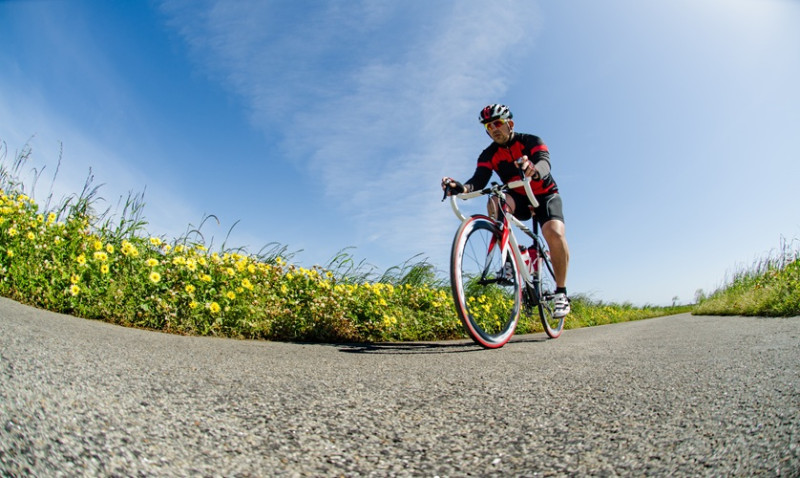
Choosing the right bike shop is crucial for every cyclist, whether you're a seasoned pro or just starting out. A good bike shop can provide you with the right equipment, expert advice, and ongoing support to enhance your cycling experience. In this comprehensive guide, we will explore essential tips for selecting the perfect bike shop that meets your needs.
1. Assess Your Cycling Needs
Before you start looking for a bike shop, it's important to assess your cycling needs. Consider the following:
- Type of Cycling: Are you into road cycling, mountain biking, or casual rides? Different shops may specialize in different types of bikes.
- Frequency of Use: How often do you ride? If you ride regularly, you may need a shop that offers maintenance services.
- Budget: Determine your budget for purchasing a bike and accessories. This will help narrow down your options.
2. Research Local Bike Shops
Once you have a clear understanding of your cycling needs, it's time to research local bike shops. Here are some effective ways to do this:
- Online Reviews: Check platforms like Google, Yelp, and social media for customer reviews and ratings.
- Word of Mouth: Ask fellow cyclists for recommendations. Personal experiences can provide valuable insights.
- Visit Websites: Explore the websites of local bike shops to learn about their offerings, services, and specializations.
3. Evaluate the Shop’s Selection
A good bike shop should have a diverse selection of bikes and accessories. When evaluating a shop, consider the following:
- Variety of Brands: Look for shops that carry multiple brands to give you a range of options.
- Types of Bikes: Ensure they have the type of bike you are interested in, whether it's a road bike, mountain bike, or hybrid.
- Accessories and Gear: A well-stocked shop should also offer helmets, lights, locks, and other essential gear.
4. Check for Expert Staff
The expertise of the staff can make a significant difference in your shopping experience. Here’s what to look for:
- Knowledgeable Staff: Staff should be knowledgeable about different types of bikes and cycling gear.
- Customer Service: Friendly and helpful staff can enhance your shopping experience and provide valuable advice.
- Experience: Look for shops with staff who are avid cyclists themselves, as they can offer firsthand insights.
5. Consider the Shop’s Services
Beyond selling bikes, many shops offer additional services that can be beneficial:
- Bike Fitting: A proper bike fit can enhance comfort and performance. Check if the shop offers fitting services.
- Maintenance and Repairs: Look for shops that provide repair services and maintenance packages.
- Classes and Workshops: Some shops offer classes on bike maintenance, safety, and riding techniques.
6. Visit the Shop in Person
Visiting the shop in person can give you a better feel for the environment and the staff. Here are some things to observe:
- Cleanliness and Organization: A well-organized shop reflects professionalism and care.
- Customer Interaction: Observe how staff interact with customers. Are they attentive and helpful?
- Test Rides: Ask if you can take a bike for a test ride to assess comfort and fit.
7. Compare Prices
Price is an important factor when choosing a bike shop. Here’s how to approach it:
- Price Matching: Some shops offer price matching if you find a lower price elsewhere.
- Sales and Discounts: Keep an eye out for seasonal sales or discounts on bikes and accessories.
- Value for Money: Consider the overall value, including services and expertise, rather than just the price tag.
8. Look for Community Involvement
A bike shop that is involved in the local cycling community can be a great asset. Consider the following:
- Group Rides: Many shops organize group rides, which can be a great way to meet other cyclists.
- Events and Sponsorships: Look for shops that sponsor local cycling events or participate in community activities.
- Advocacy: Shops that advocate for cycling infrastructure and safety can contribute to a better cycling environment.
9. Evaluate Warranty and Return Policies
Understanding the warranty and return policies of a bike shop is essential for peace of mind:
- Warranty Coverage: Check what warranties are offered on bikes and components.
- Return Policy: Understand the shop’s return policy in case you need to exchange or return a product.
- Service Guarantees: Some shops offer guarantees on their repair services, which can be a sign of quality.
10. Trust Your Instincts
Finally, trust your instincts when choosing a bike shop. If something doesn’t feel right, it’s okay to keep looking. A good bike shop should make you feel comfortable and valued as a customer.
Conclusion
Choosing the right bike shop is a vital step in your cycling journey. By assessing your needs, researching local options, and evaluating the shop’s selection, staff, and services, you can find a shop that meets your requirements. Remember to trust your instincts and prioritize a shop that fosters a positive cycling community. Happy cycling!





